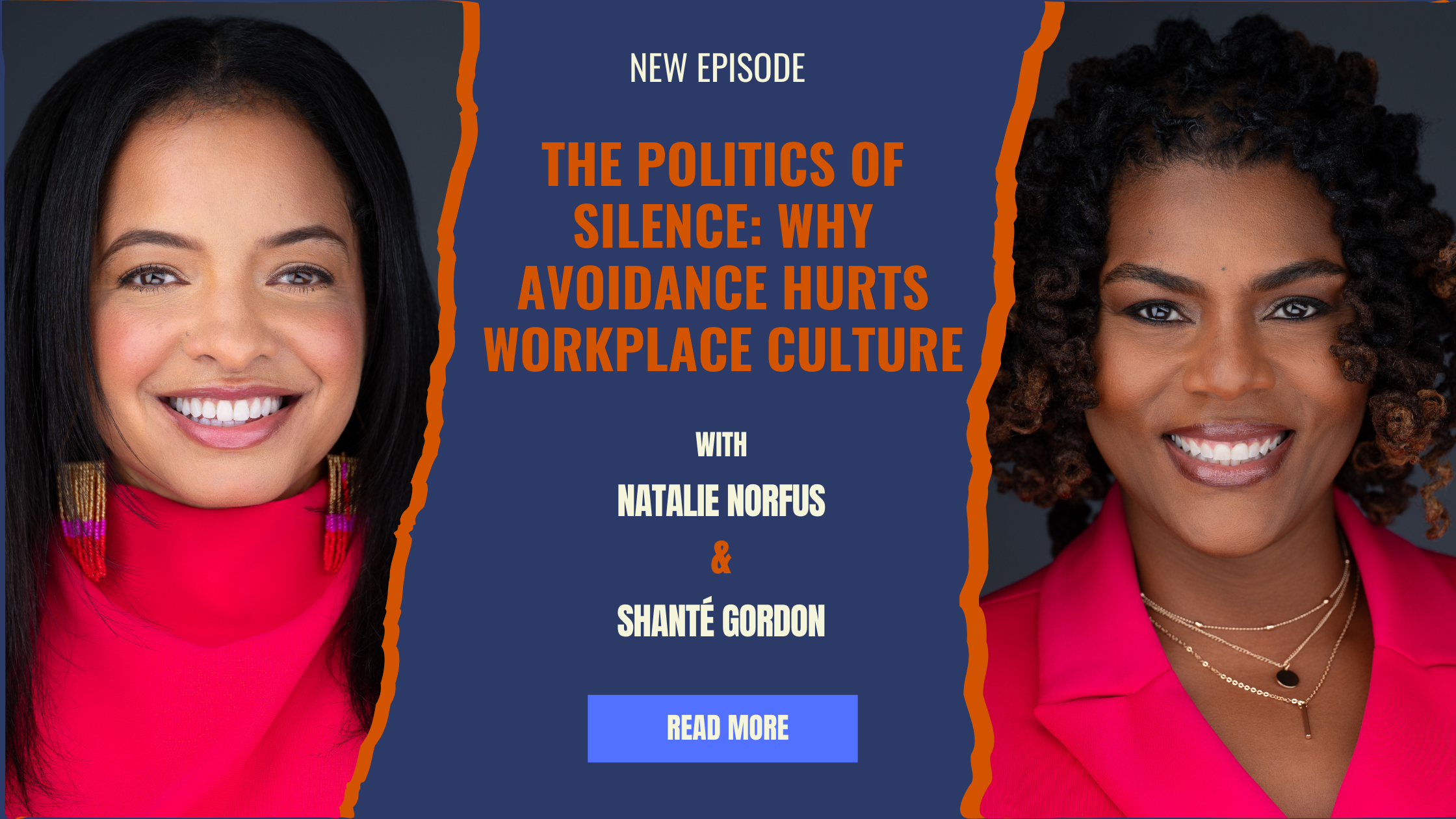The Politics of Silence: Why Avoidance Hurts Workplace Culture

In today’s climate, it feels like you can’t open your phone, scroll social media, or even make a casual conversation without running straight into politics. Workplaces, once seen as neutral zones, are no exception. But here’s the hard truth: avoiding political discussions at work is no longer realistic — and worse, silence might actually be hurting your culture more than helping.
On this episode of What’s the DEIL?, we unpack why the old best practice of “no politics at work” no longer fits in today’s world and what that means for leaders and employers everywhere.
Politics Are Everywhere — Even at Work
Not long ago, we might have confidently advised, “Keep politics out of the workplace.” But today, that advice feels outdated. Why? Because the lines between personal identity and political identity have blurred.
Whether immigration policies impact employees’ families, the future of DEI programs is under scrutiny, or shifting laws around social justice issues, people feel these matters deeply—because they’re not just political; they’re personal.
Employees can’t simply “turn off” their lived experiences when they clock in for work. These issues follow them everywhere, influencing how safe they feel, how included they feel, and how engaged they are.
Silence Isn’t Neutral — It’s Risky
Many employers still hope they can sidestep conflict by saying, “We don’t discuss politics here.” But here’s the thing: avoidance creates bigger problems.
When you resist addressing what’s happening in the world, you miss an opportunity to build trust and acknowledge your employees’ reality. Worse, selective silence can feel exclusionary — especially if employees see you ignoring topics that deeply affect their communities.
Without open channels for dialogue, frustration festers, assumptions thrive, and workplace tension quietly builds.
The Risk of Assumptions
Another layer of complexity? Assumptions about what others believe.
People often assume their coworkers share the same views — but they might not. And when certain perspectives dominate conversations, others feel alienated or silenced.
That’s why it’s critical to create inclusive spaces that respect diverse perspectives, even (and especially) when opinions vary. Recognizing the full spectrum of viewpoints fosters psychological safety and healthier team dynamics.
Containers, Not Chaos: How to Navigate Conversations
The goal isn’t to turn every team meeting into a political debate. It’s about creating containers for appropriate dialogue. That means:
- Being clear about when and where sensitive conversations are welcome.
- Allowing space for employees to express concerns without derailing the workplace mission.
- Acknowledging that not every issue will be addressed at work — and that’s okay.
By thoughtfully structuring these spaces, leaders help teams process what’s happening in the world without overwhelming their day-to-day work lives.
The Most Critical Skill Right Now: Self-Awareness
If there’s one takeaway from this conversation, it’s this: cultivate self-awareness.
Ask yourself:
- How are you showing up at work?
- Are you projecting frustration in ways that impact your team?
- Are you creating space for others to be heard?
- Have you checked in on how your employees are really feeling — recently?
In a fast-changing world, self-awareness isn’t just helpful; it’s essential. And as a leader, being mindful of your reactions and leadership style can help you navigate this challenging landscape with empathy and clarity.
Final Thoughts: Don’t Avoid. Engage Wisely.
We get it — these are hard conversations. But pretending they don’t exist won’t make them go away.
It’s time to move beyond the outdated belief that silence keeps the peace. Instead, embrace thoughtful engagement, create safe spaces for conversation, and check in with your employees regularly to understand what’s really on their minds.
Because when employees feel heard and respected, they’re not just more engaged — they’re empowered.
Connect With Us
If you found this discussion compelling, we invite you to connect with us further. Here are some ways to stay in touch:
- Follow Natalie Norfus on LinkedIn
- Follow Shanté Gordon on LinkedIn
- Book a consultation with The Norfus Firm
- Follow What’s the DEIL on Instagram and TikTok
